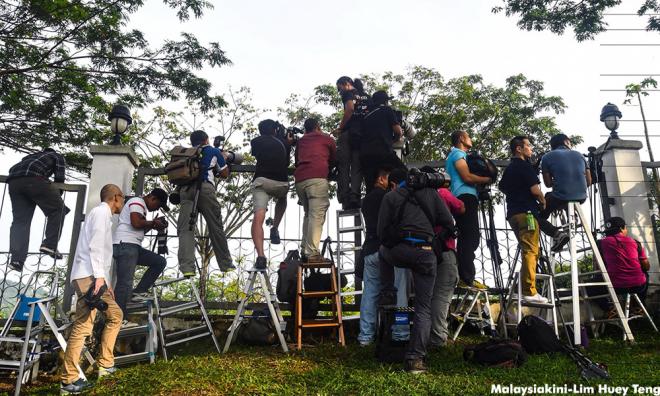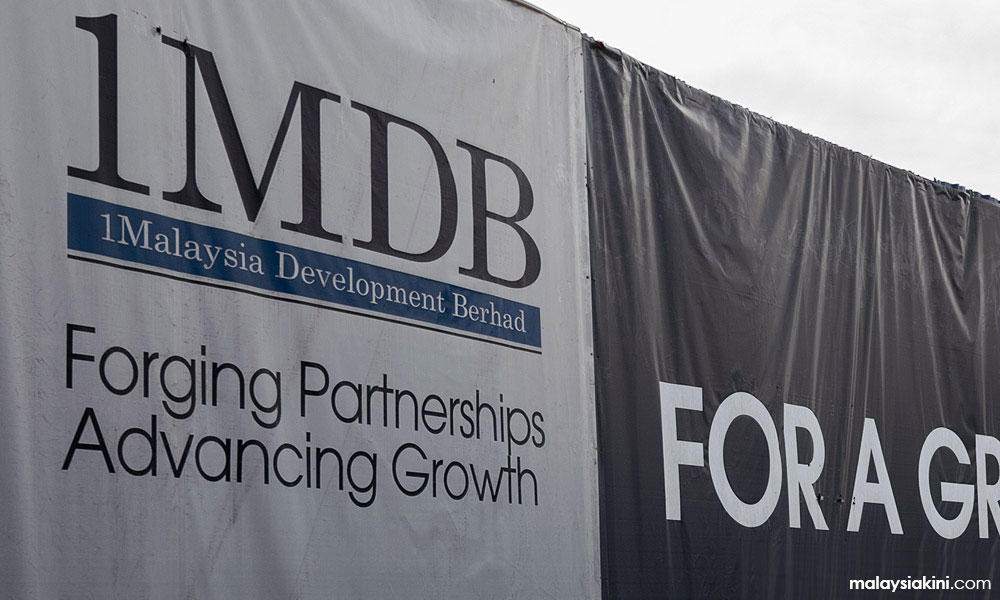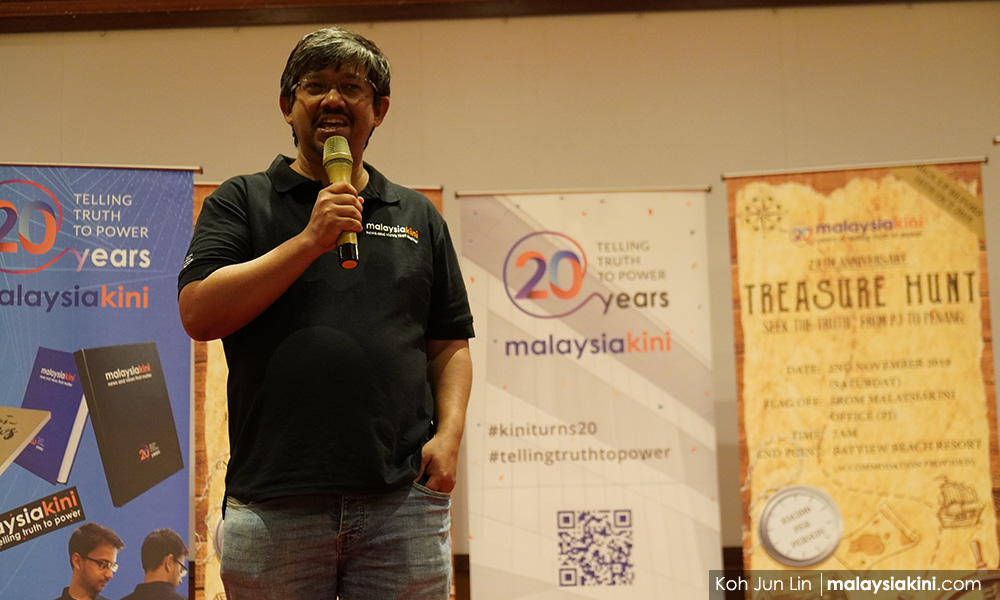
There’s a current and common story about the media that the public isn’t paying enough attention to. It’s the crisis of media collapse, and the cost it will have on all of us.
This crisis has two parts to it. It is about how much more dependent we all are on good journalism during a pandemic or political crisis. And it’s about how, around the world, the media are still struggling to remain viable businesses. BuzzFeed's recent retreat from the UK and Australia is a stark reminder that news doesn’t make money, even if a newsroom does extraordinary work.
Our dependence on good journalism is even more acute in countries like Malaysia, where an illegitimate government is deliberately silencing Parliament, and elected politicians wilfully ignore the people’s mandate.
And yet, the likelihood of media outlets surviving is bleak and getting even bleaker.
The fact is, there is a disconnect between the critical role independent and critical media play, and how consumers perceive the value of that role.
The reason for that disconnect? It’s because not enough people are considering this question that Hidden Brain host Shankar Vedantam, in a podcast episode, poses: “Who bears the cost when nobody wants to pay?”
The fact is, we all bear the cost when independent media don’t survive as businesses. We just don’t know there’s a crucial cost we end up paying, because that cost isn’t immediately apparent.
In the episode, “Starving the Watchdogs: Who Foots The Bill When Newspapers Disappear?”, Shankar explains that cost. He provides important research findings of just what the cost is to us if we don’t pay for the news we read.
The findings are from research by three finance professors that were published this year in the Journal of Financial Economics. The research shows that when a newspaper closed in the US, the borrowing cost for governments in that area went up by about 0.1 percent.
That may not sound like much, until you do the math.
A government loan in the research sample was about US$65 million on average. Explains Shankar: “If the cost of a loan goes up by 0.1 percent, that's about US$65,000 more that taxpayers have to pay – US$65,000 more every year. If the life of a loan is 10 years, that's about US$650,000. And that's just for one loan. Cities and towns often have many loans like this. If a city has five projects, that's more than US$3 million. If it has 50 projects, it's more than US$30 million.”
Why does borrowing become more expensive when newspapers shut? Shankar and one of the researchers, Dermot Murphy, point to the fact that banks know governments will be less careful and/or more corrupt when the media are not able to do their job.
“It's like getting rid of the police officers who patrol neighbourhoods,” says Shankar.
Hence, banks increase the cost of borrowing to compensate for those risks.
Admittedly, the research in the Hidden Brain episode is US-based. And no similar research, as far as I know, has been done in our part of the world. But the principle remains the same.
As TV show host John Oliver joked, not having journalists monitor the government is like a teacher letting her 12- to 13-year-olds supervise themselves.
“Best-case scenario – Brittany gets gum in her hair. Worst-case scenario – you no longer have a school.”

Malaysians have directly benefited from having teachers stay in the classroom. If not for the work by, among others, journalists in The Edge and The Wall Street Journal, the Najib Razak-led 1MDB would have continued defrauding Malaysians on “an enormous scale”.
This is the value the media play all around the world. For example, an ongoing media investigation in the UK has exposed that a healthcare firm, which employs a prominent Conservative politician, was awarded a £133 million contract without any bidding. The Guardian’s investigation also revealed that firms were awarded £1 billion of state contracts without tenders in the Covid-19 crisis.
In the US, a senior Republican senator was forced to step down as chair of the Senate Intelligence Committee after he was investigated, following a ProPublica report that he sold a significant percentage of stocks ahead of the market crash due to Covid-19. As chair, he had access to classified information about how Covid-19 was going to affect the market.
Think about it – if the media cannot continue to play a watchdog role, how will we ever find out about corrupt practises under either the Perikatan Nasional federal government or the Pakatan Harapan state governments?

Already, we have heard stories of government food aid baskets worth only RM35, even though they have been declared to be worth RM100. And then there is the ongoing Malaysian Anti-Corruption Commission (MACC) investigation into Health Ministry contracts, believed to be worth at least RM30 million.
And despite all of this, many media are struggling to stay afloat.
In a newsletter to donors in late April, The Guardian wrote: “It's a great time to be a journalist, but a tough time to be in the journalism business. Across the entire industry, colleagues are galvanised by one of the biggest stories they'll ever cover, and at the same time concerned by the sudden implosion of the business model.”
The fact is, an increase in readership doesn’t inevitably translate into increased revenue for the media. Increased subscriptions where news sites are behind a paywall also hardly ever compensate for dramatic shortfalls in ad revenue caused by any number of external events. These could range from a change in government or regulations to outbreaks and pandemics to recessions and market contractions. Or it could be a combination of all these as we are currently experiencing in Malaysia.
Because of the pandemic, The Guardian reports “advertisers have withheld millions in spending, depriving media, local and national, of critical income”. One estimate puts the loss of revenue for the media in the UK alone at £650 million.
In Malaysia, the situation is hardly any different even if the figures are not the same.
For example, Malaysiakini’s readership in Q1 2020 was up by about 20 percent as compared to the same period last year. But advertising revenue fell by 40 percent for the same period. Although growth in subscription revenue reduced the impact, a pay cut for staff above a certain salary was still necessary to stay in the black.
That means some journalists, who do the critical reporting needed during a time of crisis, are getting paid less for working harder and under much more stressful conditions.

Malaysiakini CEO Premesh Chandran (photo) says that last year, 30 percent of its revenue was from subscription, and 70 percent from advertising. In order to limit its dependence on advertising, they had already aimed to increase subscriptions to shift the ratio to 50:50 by 2021.
With Covid-19 dramatically affecting ad revenue, that 2021 goal needs to be rapidly brought forward. And yet, that goal can only be achieved if more and more media consumers recognise the need to subscribe to independent media so that these media can continue to be a watchdog to those in power.
I’m not just saying this because I’m a Malaysiakini columnist. I’ve been a Malaysiakini subscriber for years because I recognise the importance of keeping independent media alive. I’m also a subscriber to The New York Times, and a donor to The Guardian, because I know that they will report on critical issues, like what they did on the 1MDB scandal, if and when our national media are not able to.
Shankar says in Hidden Brain that even though print and online readership has soared in the past months, newspapers in the US are “collapsing”. Anecdotal evidence tells me the same will happen in Malaysia unless something is done about it.
We really cannot afford to have credible, independent media collapse, not here nor elsewhere. Not when we have an illegitimate government in power that is steadily dismantling all the checks and balances needed for a sturdy democracy. And not if we don’t want corruption to soar.
At the start of the year, before Covid-19 entered our vocabulary, one high income-earning and educated friend declared: “I refuse to pay to read the news!”
Unfortunately, she’s neither unusual nor unique. The common thinking is, if I can get so much free stuff on the internet, why should I pay?
Clearly, that is because too few people understand how costly it would be to each one of us if we didn’t have independent media surviving as businesses. It is also because the industry has failed to communicate its actual value to tax-paying consumers.
Shankar stresses that most people treat newspapers – and I would say the media in general – like consumer products. But they are not like a cup of expensive coffee we don’t buy because we have free coffee at the office. They are more like police departments.
“(If) we decide not to pay for a police department, we might save money in the short run but end up paying much more in the long run.”
JACQUELINE ANN SURIN is an online trainer and facilitator, a Drama@Work consultant, and a leadership coach. She was an award-winning columnist, a journalist for 20 years, and the co-founder of The Nut Graph before switching careers. - Mkini



No comments:
Post a Comment
Note: Only a member of this blog may post a comment.